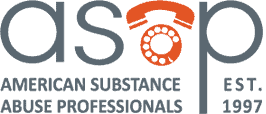By: ASAP
Alcohol is the third leading cause of death and comes at a cost of $249 billion in the United States according to the National Institute on Alcohol Abuse and Alcoholism (NIH, 2022). This startling statistic shows how prevalent alcohol is in society. The costs to companies can come from absenteeism, lack of productivity, accidents, on-the-job injuries, and other safety concerns. However, it is the supervisor’s job to understand how to recognize signs and symptoms of alcohol impairment and what to do to maintain a safe work environment.
Recognizing Signs and Symptoms
Alcohol impairment impacts those in the workplace in different ways. Alcohol use of any amount in the workplace creates an unsafe environment that puts employees at risk and increases the chance of onsite accidents. Recognizing the signs and symptoms of alcohol use can help identify those that may be impaired and need to be removed from a safety sensitive position. Signs and symptoms may include the smell of alcohol, drowsiness and reduced reaction time, lack of muscular coordination, sensory dullness, and memory or judgement impairment. Any one of these symptoms can cause a safety concern.
Educating the Workforce
Another aspect of enhancing a safe work environment is educating workers on the dangers of alcohol impairment to themselves and others around them. Department of Transportation (DOT) employers have required drug and alcohol training for employees according to the regulations of DOT CFR Part 40 and other companies will often include mandatory training as part of their drug and alcohol policy. ASAP offers reasonable suspicion/impairment courses for supervisors and employee training on substance abuse awareness. Understanding how to recognize and handle employees that may be using alcohol creates a payoff for everyone. It makes the workplace safer for everyone and builds an environment of trust among the employees. In addition, the company achieves higher productivity and saves on healthcare costs. Most importantly, it may save a life by encouraging the employee to get help.
Another way to encourage an employee to ask for assistance is the addition of a self-referral or management referral program. These programs are designed for employers to be proactive by allowing an employee to step forward requesting help before an accident occurs by intervening early when the signs and symptoms of potential alcohol use/misuse appear. Putting a structured program in place and identifying the objective for both parties including consequences if missteps occur has great return for all parties involved. Although the employee may still be subject to disciplinary action, there is a financial benefit to the employer of retaining that employee and providing the employee an opportunity to retain their employment and financial viability as well as receiving the help they need.
Handling a Potentially Impaired Employee
For employers that have a company policy and/or fall under federal regulations and an employer suspects an employee is under the influence of alcohol or substance use, the employer must send the employee in for a reasonable suspicion test. A breath alcohol or instant saliva alcohol test does provide the employee’s impairment level, but it is essential to test for both alcohol and drugs. When approaching an employee, it is critical to discuss the issue with the employee in a private setting using a non-judgmental tone. Transportation should be arranged to drive the employee to and from the testing site, as the employee should not drive in an impaired condition. This removes the employee from the work environment until they are no longer impaired. It is imperative for employers with DOT covered employees and similarly structured non-mandated programs to follow company policies to ensure the success of the organization and its employees.
If you are an employer that is having an issue with potential misuse and impairment in the workplace, please reach out to American Substance Abuse Professionals (ASAP). We can support you with DOT and non-DOT supervisory training for reasonable suspicion/impairment detection, second chance programs through substance use evaluations, aftercare and follow up testing monitoring, as well as promote employee awareness on alcohol use. Call ASAP at 410-366-3899 x607. Work Safely.
References
NIH. (2022). Alcohol facts and statistics. https://www.niaaa.nih.gov/publications/brochures-and-fact-sheets/alcohol-facts-and-statistics





